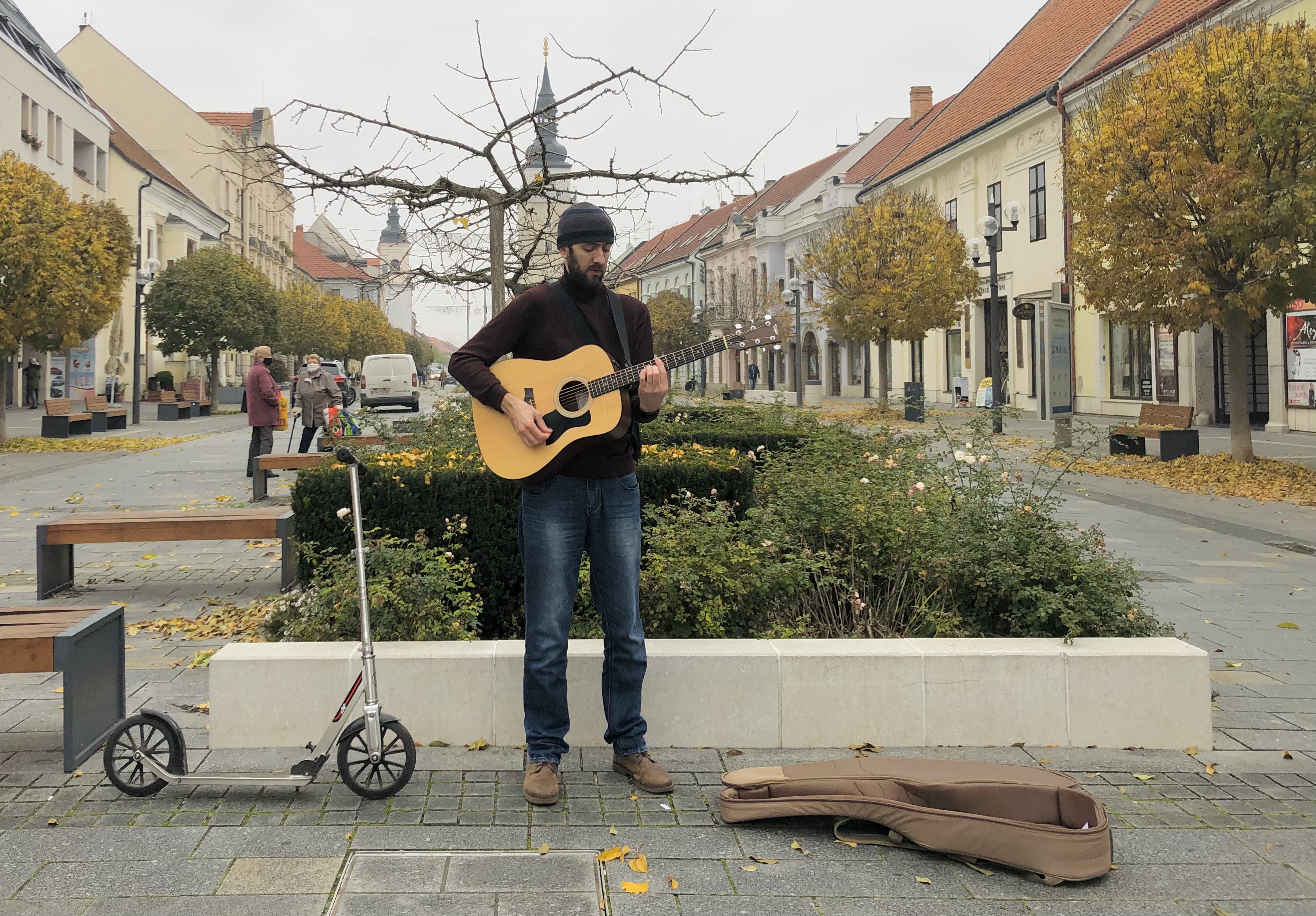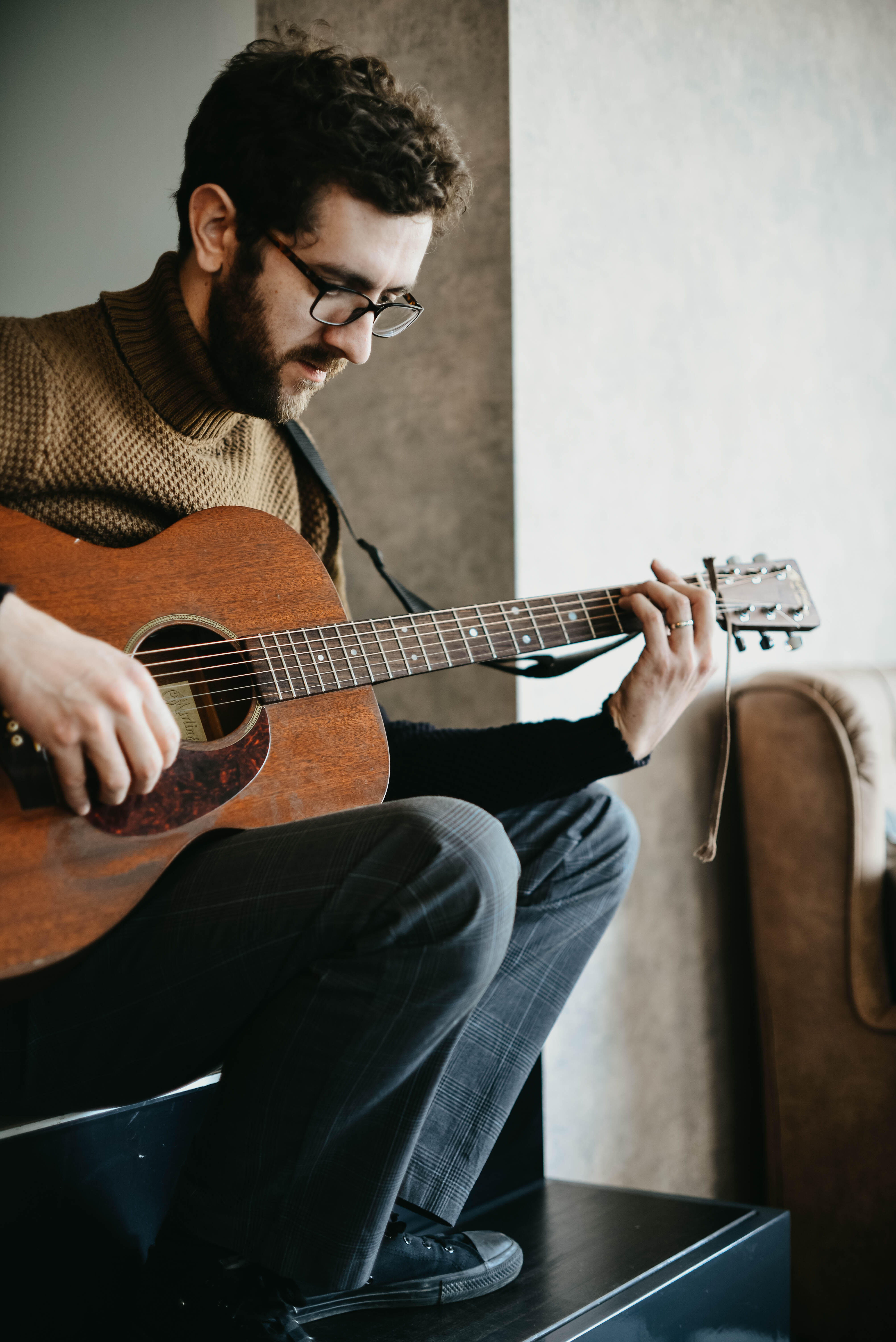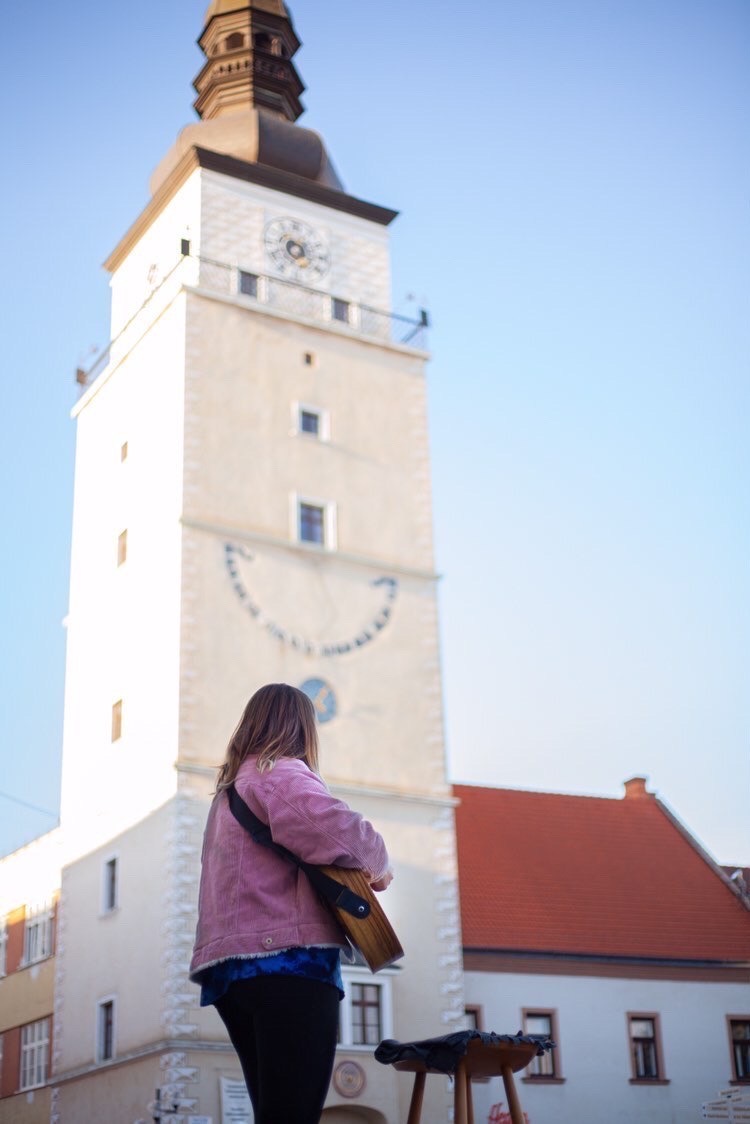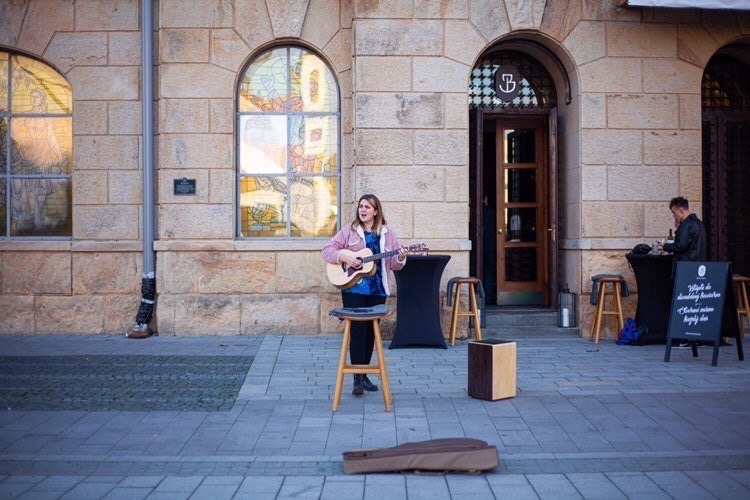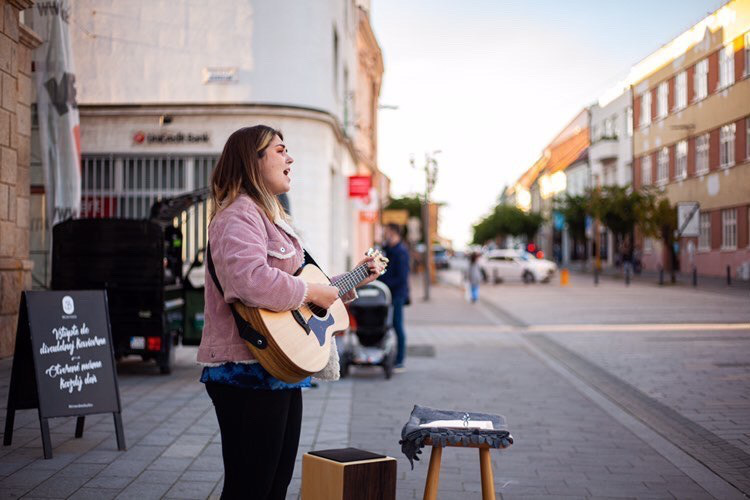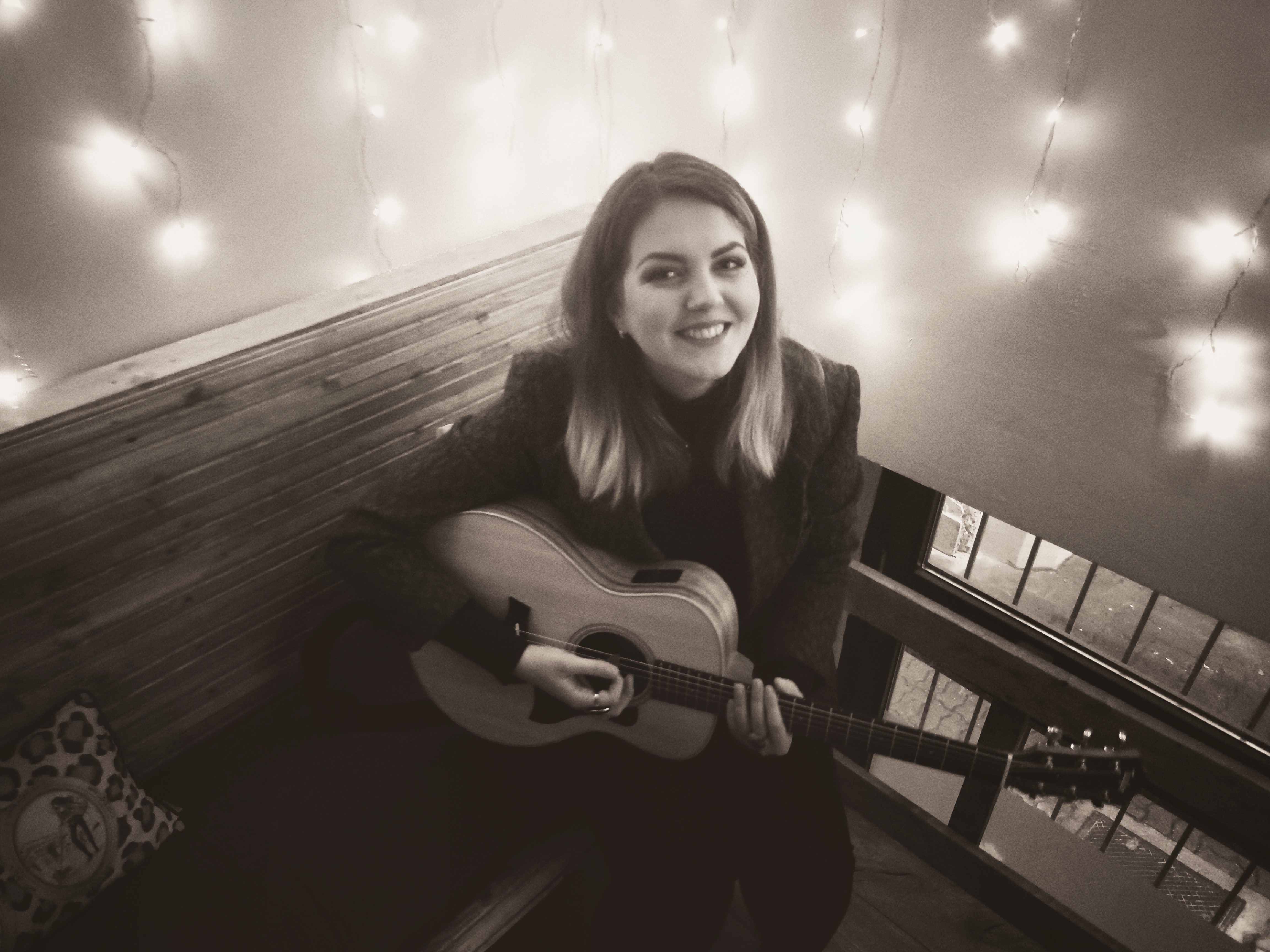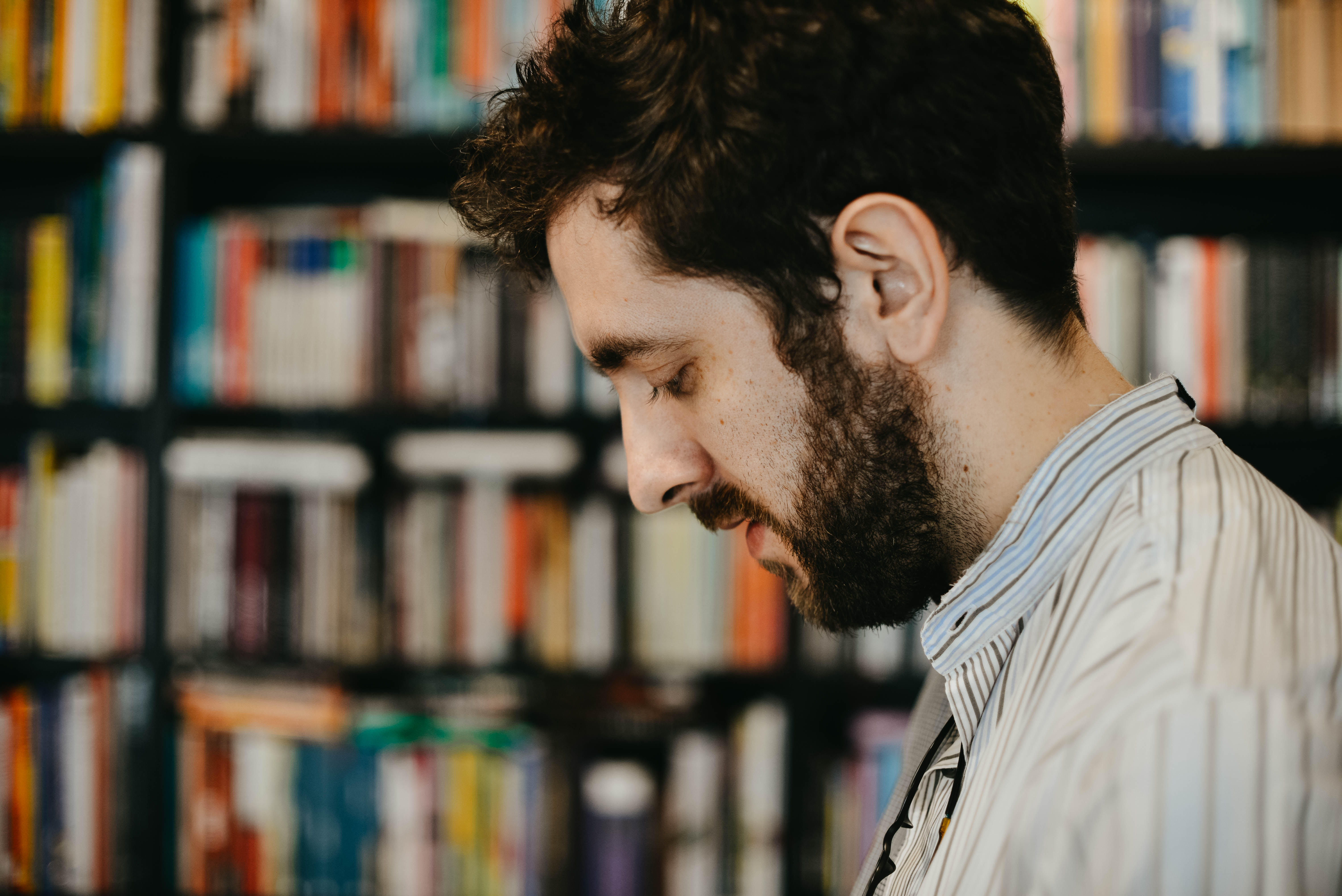The Trnava musician from Northern Ireland, Graeme Mark, went from the solo songwriter to the band, at the same time returning to the roots - to the music played on the street. What would you say, is it worth playing more like this in Trnava or Vienna?
We talked not only about what makes a busker successful, but also about how street music in Trnava would benefit from obtaining the ECOC 2026 title.
The holder of the title of European Capital of Culture for this year is Galway, Ireland, you are from Northern Ireland.
Galway, really? (positively surprised) I know, even though I haven't been there in a long time.
Hey. It is similar to Trnava, has about 80,000 inhabitants. Could you compare the local culture with ours?
The people of Galway make great use of their city, as do the people of Dublin and Limerick. The centers are built to attract people naturally. It looks similar in Trnava. You go down Main Street on Monday night and it's lively. Trnava is unique in Slovakia.
Where is it better more to be a street musician?
It can be said that I started with street music in Trnava. I've never done that in Irish cities either. It's very popular in Dublin, but I can't rate it. There's a famous street where people play, it's called Grafton street. As you walk through it, you will meet a hundred such artists there. They play, sing, and do theater. The actors will simply come to you, give you a flyer. We're performing in the park at four o'clock, see you there!
Is it a spontaneous action? Isn't it part of a broader program, such as the Trnava Korzo?
Yes, it's organized only by the theater, its actors. But I'm talking specifically about Dublin. Other cities in Northern Ireland are small, my city has a population of 30,000 and they are not built to have many people on the streets. This is also the case in Belfast. Cars are parked everywhere, you nearly don't have a pedestrian zone. The architecture of the city does a lot. While Dublin is full of people!
When Dublin and songwriting are mentioned, I'll immediately remember the movie Once and the Oscar-winning song Falling Slowly. Does the film faithfully portray the atmosphere of Dublin culture?
It's like in a movie. That story could have happened. Once is very good in that it is realistic. The guy who made it (note: John Carney) makes very good films. Really watch the movie Sing Street from him, he's great.
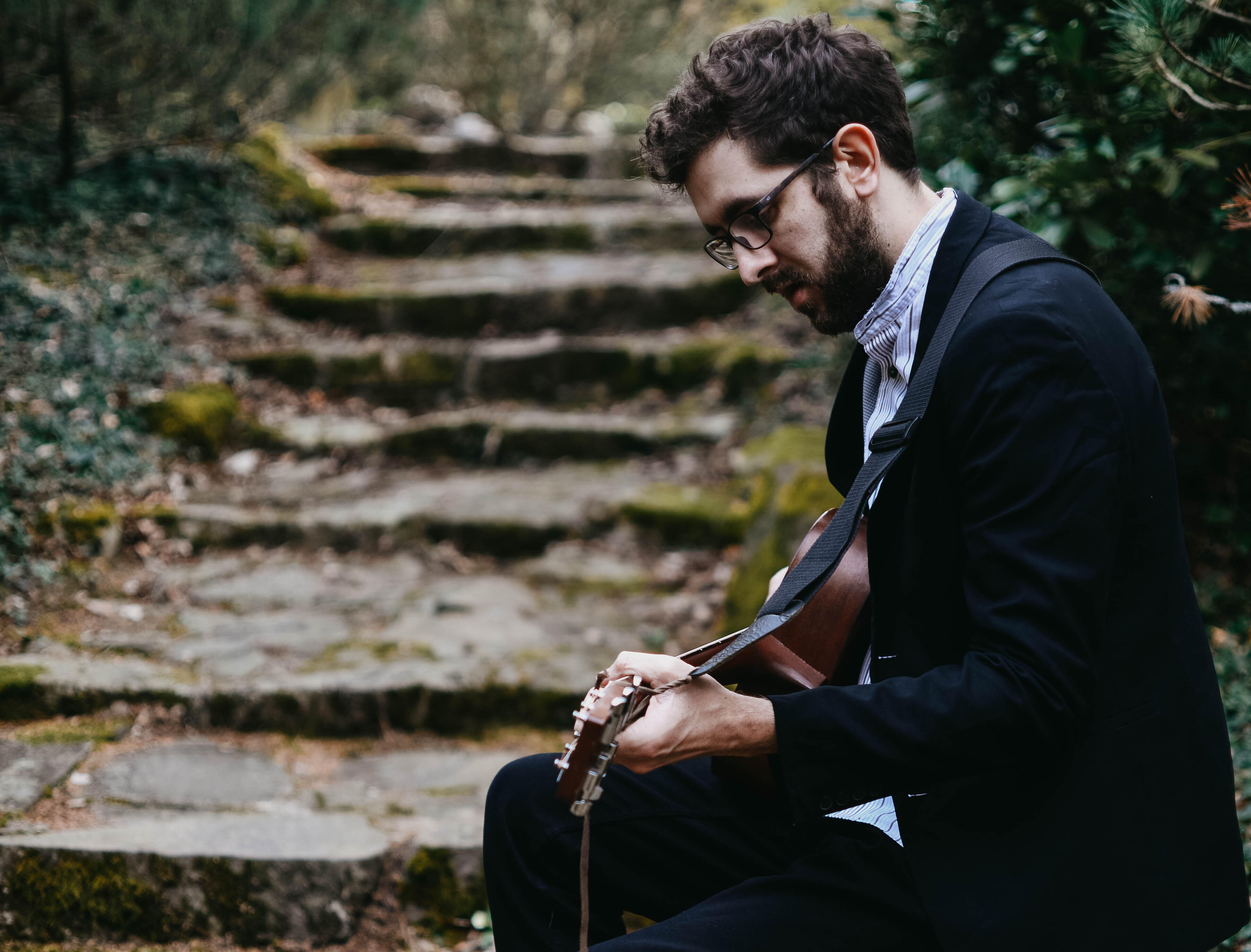
You recalled in an interview that Slovaks are less confident than the Irish. Does this also apply to the Trnava cultural community compared to the cultural communities in Ireland?
Basically yes, although I would say that Trnava is different from other Slovak cities. More and more, people begin to live a culture here.
How would it turn out if the people of Trnava gained more self-confidence?
People would not be afraid to present their ideas. The moment you are not afraid of negativity, everything progresses - and very quickly. A positive attitude will show. It is connected with raising children so that they are not afraid to say what they think, so that they do not encounter negativity often. It is carried over into adulthood.
In Trnava, you have also played at several civic political events. How do you perceive the connection between art and politics?
Personally, I would not play in a political party meeting. This is how I separate my art from party politics. But on the other hand, to say that everything needs to be separated from politics would be nonsense. For politics is a game of power; it means who has power over you. And shouldn't art have anything to say about that? Art tells the truth against power. What would be left if we took this art? It is impossible to separate art from politics. Otherwise, you would only get such a toothless art form.
How many street artists are there in Trnava?
There were about eight of us in the civic association Trnava songwriters. Those who sing on the street, I would count on one hand. As for other street artists, I don't know them in any special way. We have a violinist, a saxophonist in a wheelchair, he's great, a Ukrainian woman with a flute and a guy who plays the clarinet. These are instrumentalists. And then there are the singers Timka (note: a.k.a. Freezie), Mirka, Stano and me.
Freezie: Sometimes I play with my friend, our name is The Buskers. We started playing on the street together in high school, both guitar. After high school she went to school in Košice, I went to Trnava. Then I played alone. Well, now I've met a drummer, we've formed a duo. He plays the cajón, I play the guitar and I sing. During the summer we played in Trnava quite often.
Freezie, where did you play?
Either on Trinity Square in front of the theater, then at the hashtag or at the station.
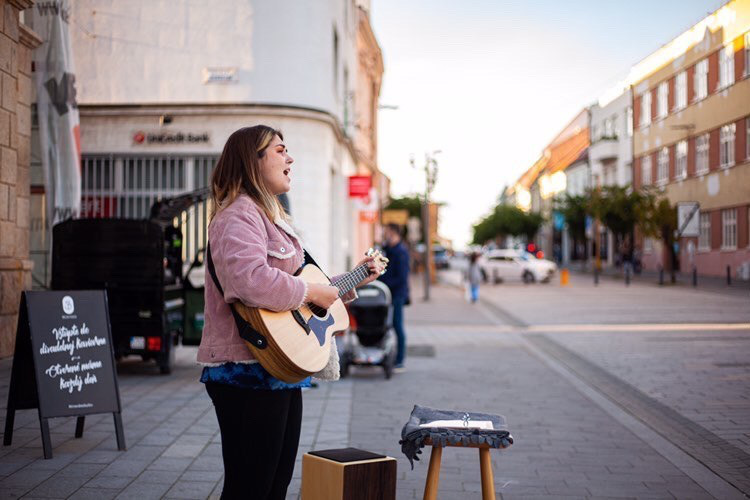
What about the quality of buskers?
Graeme: I can think of one related political issue. For example, in Piešťany there is one guy, he stands on a bridge and plays one chord on a guitar for six hours and blows a panham. Other baskers have no chance of getting there, he just annoys people, he has a plastic bottle of wine next to him, and in those six hours he makes enough for more wine. The question is, how to treat such people? Can you forbid them to play on the street? Because if you do, then you're like having only chosen people who can play? ... Well, it's all for debate. Because buskers can agree among themselves. In Piešťany, I can alternate with one busker in one place, her name is Sára. But you can't get along with that guy.
What could be the solution if the cops can't actually fire him?
Graeme: Well, they can. But that would have to blow everyone away. And then there's the strict Vienna system, where you need permission and follow the rules. But then it's not so free anymore.
So do buskers play well?
It may sound cruel now, but I can't say otherwise. The virtuosity of playing is not the most important thing to attract passers-by. They need to sing songs that they know, smile at those people, even if they don't throw money. You must come with energy. I can play better than I play on the street. There I just go "campfire songs". You have to think about what the viewer wants. Your audience is a passer-by and they are not ready for some virtuosity. I don't have much sympathy for artists who feel misunderstood and see the problem in the audience. If people don't understand you, you did something wrong. That's why I love busking so much. It is the clearest form of art. Either you impress people with your art or you don't. It's a challenge.
Freezie: When people started noticing us on the street, they started coming to us and asking us if we would come to play somewhere. This is how I was called to play, for example, for a birthday party or even for a wedding. Just me, the guitar and the songs (laughs), so it was quite interesting!
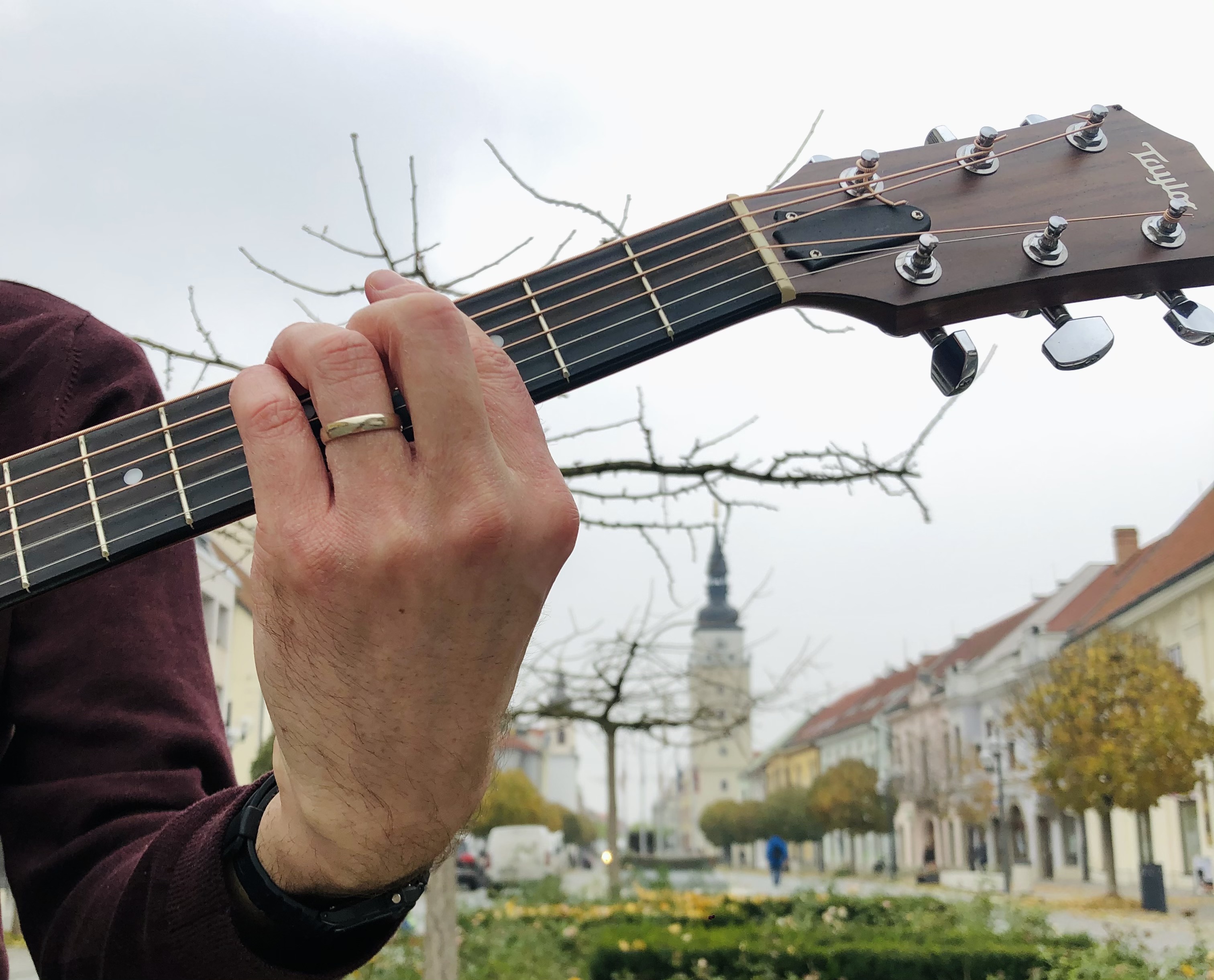
When Trnava obtains the ECOC title, what should not be missing as part of the flourishing of culture in the city?
Graeme: I miss the community of musicians the most. I also tried to build it here. Musicians or songwriters act as if they do not have their own community. I tried to form a civic association of Trnava songwriters so that we could support each other and have events where we could play. There are venues, you have a place to play. But you need to make good events for people to come. We played in various cafes and as Trnava songwriters on Zelený kríček.
So what is the missing glue that is missing for songwriters to function as a community?
Graeme: I don't know, overall the project somehow failed, the corona didn't help either ... It would probably want a person who is more charismatic than me, who could connect people better. In Northern Ireland, for example, you don't just have bands that work on their own. Musicians get to know each other and form bands from the community. And they support each other, for example, negotiating opportunities for the event. In addition, the artist can live a fairly lonely life and needs support and encouragement to decide to continue his work. Many people give up, writing songs loses its meaning because they don't see a profit in it. This is sad because songs are important. This is my vision, I just don't know if the members understood it. And it's definitely my fault. But I still believe that something like this can be done.
Freezie: I am a new member of the association, I started playing with them last winter. Graem called me. I have no idea how he found me, but I was very pleased. It's great that something like this works for musicians.
How could the ECOC project help this?
Graeme: The biggest problem with my project was that we didn't have people, I was on my own. When we did the action, I was the sound engineer, I equipped the sound system, I was looking for artists to come and play. After a while, I probably burned out and I didn't want to continue. The ECOC project would help make people more willing to help. Despite the financial evaluation. I've been willing to do it for free for a while, but you need money to pay for better artists and sound. It would be very helpful if we had a sound engineer.
So the city would support artists more with finance, human resources and technology?
Yes.
What is the street audience like in Trnava?
Graeme: I've lived here for eight years. When I arrived, I only played on the streets. And people enjoyed it. At that time, I said to myself that I would not present myself as a street artist in Trnava, I wanted to work with the band and create a "more serious" impression. I went to Vienna for about two years and for a while to Bratislava and Piešťany. Only recently did I start thinking differently and returned to the streets of Trnava. I started and found that people perceived it really well. I haven't thought that playing would bother anyone. This is not the case in Vienna. There you always come across someone who complains. The rules are also strict. You get Platzkart and you only have to sing at a specific date in the right place and nowhere else. And while you're not on those main streets, it doesn't make sense. I don't have to pay 30 euros to travel or spend all day playing. It's better in Trnava.
Freezie: In Trnava there is a different audience compared to other cities in Slovakia. And quite significantly. In Bardejov or Košice, people barely clap. Here, wherever I played, people applauded. Or they even asked for an autograph! When we were playing at the hashtag, people went to sit at a nearby pizzeria to listen to us. They gave us applause after each song - it was "waaau" for us! I haven't really experienced that before. Here are people who perceive more, listen more and are more open to providing feedback. Thanks to playing in Trnava, we had the most beautiful summer.
Peter Bestvina
PHOTO: Graeme Mark Archive, Freezie Archive, Jana Pekárková
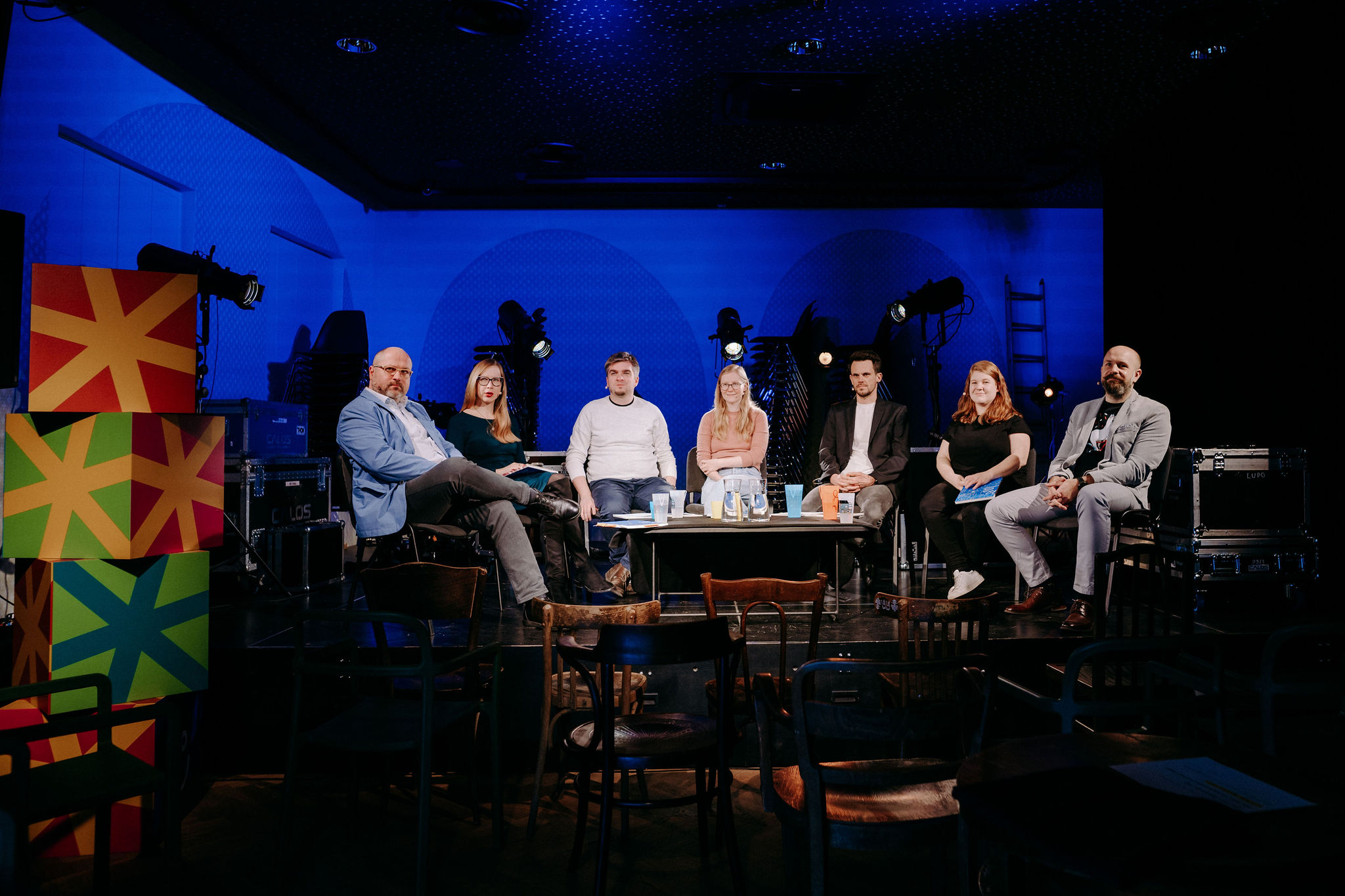
Presentation done! Thank you
Máme za sebou 90- minút prezentácie pred medzinárodnou porotou. Ďakujeme všetkým, ktorí nám pomohli s prípravou bidbooku, prezentačnému tímu za Trnavu, aj štábu, ktorý zabezpečil živé vysielanie z Malého Berlína.
Read more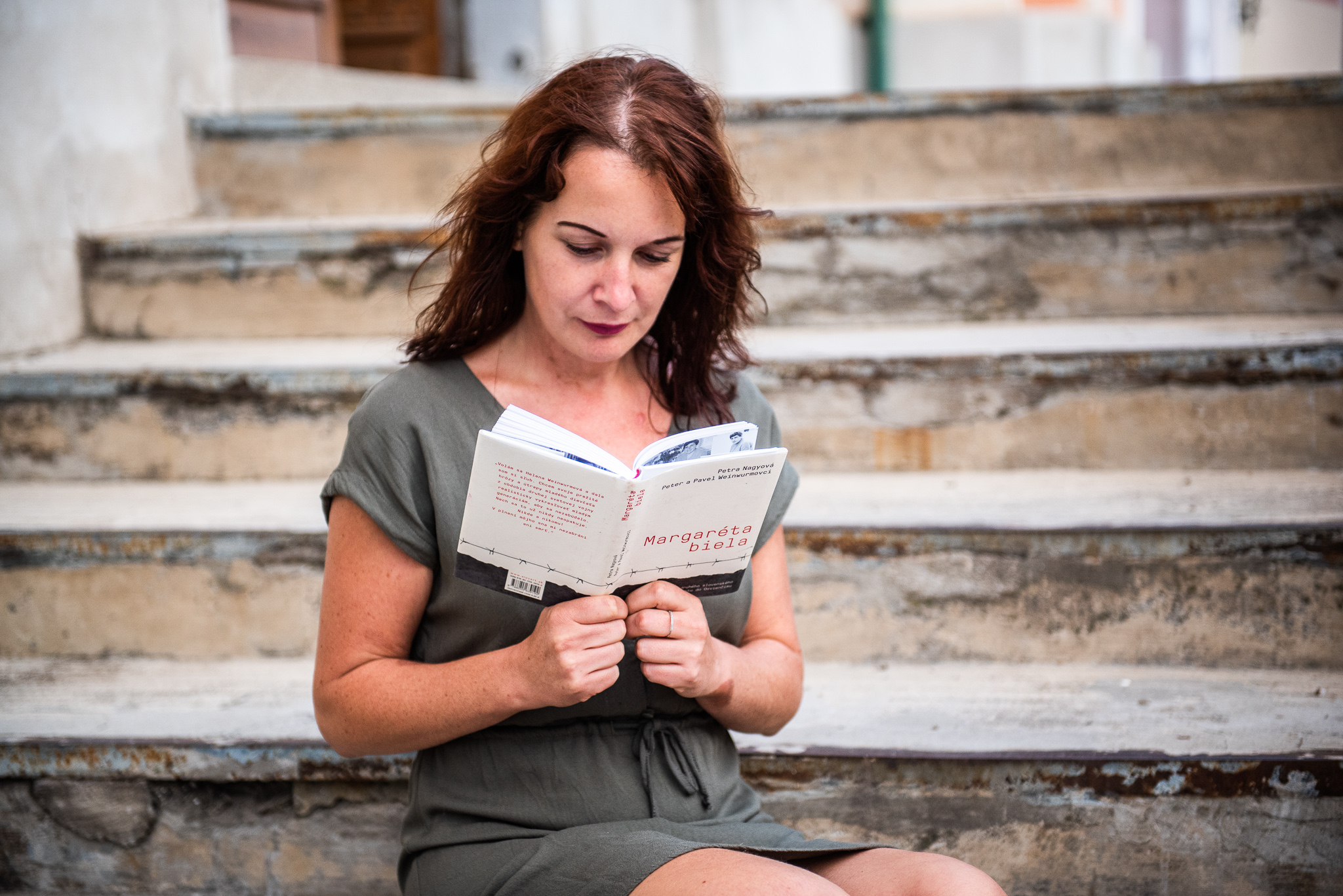
Blog: Trnava could also inspire developed cities abroad
Trnava očami Petry Nagyovej, ktorá v Trnave dlho aktívne pôsobila v oblasti PR a komunitného života, a hoci sa posledné roky živí písaním mimo Trnavy, dokonca i Slovenska, k nášmu mestu má stále silný vzťah. Ako vníma Trnavu a rozvoj kultúry v čase? Prečítajte si jej osobnú výpoveď.
Read more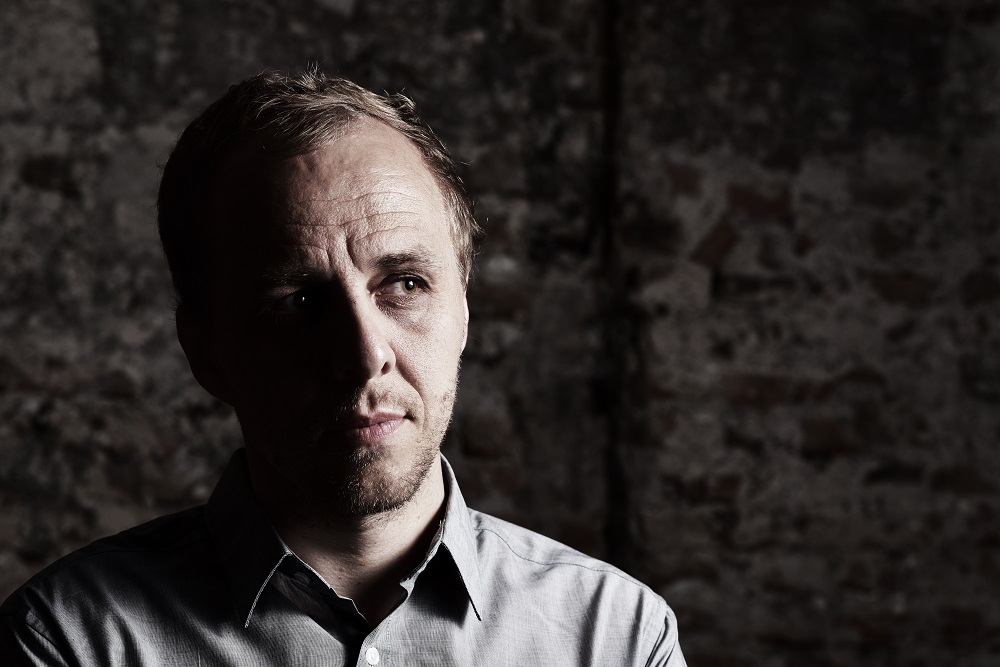
Interview: How an online guru disconnected himself from social networks and discovered inner peace
Zhovárali sme sa s Dušanom Vančom, marketingovým stratégom projektu Trnava 2026. Okrem práce na kandidatúre stíha byť šéfom Nádvoria, Trnavského rádia a producentom elektronickej hudby pod pseudonymom Foolk. Aby toho stíhal viac, odpojil sa zo všetkých sociálnych sietí.
Read more